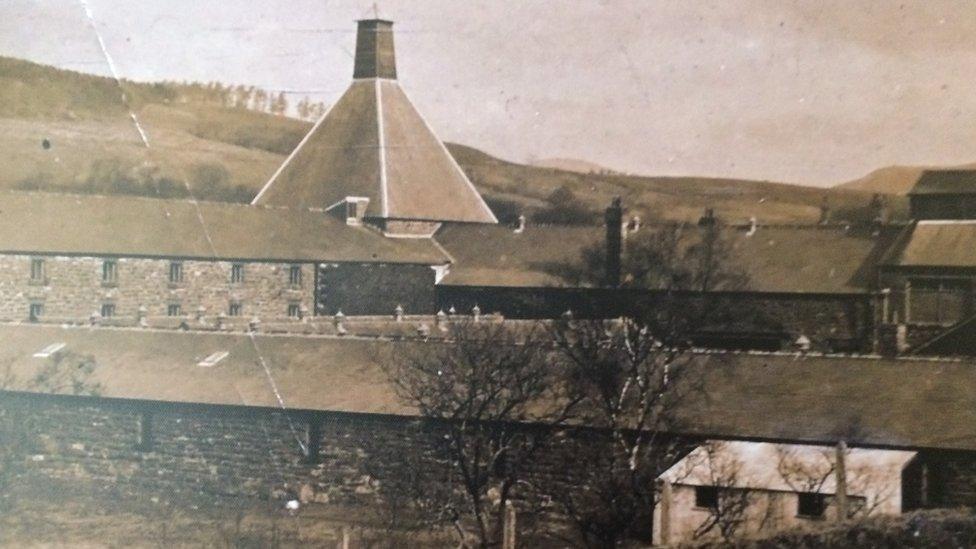Gaelic football: Frongoch plaque marks village's links to game
- Published
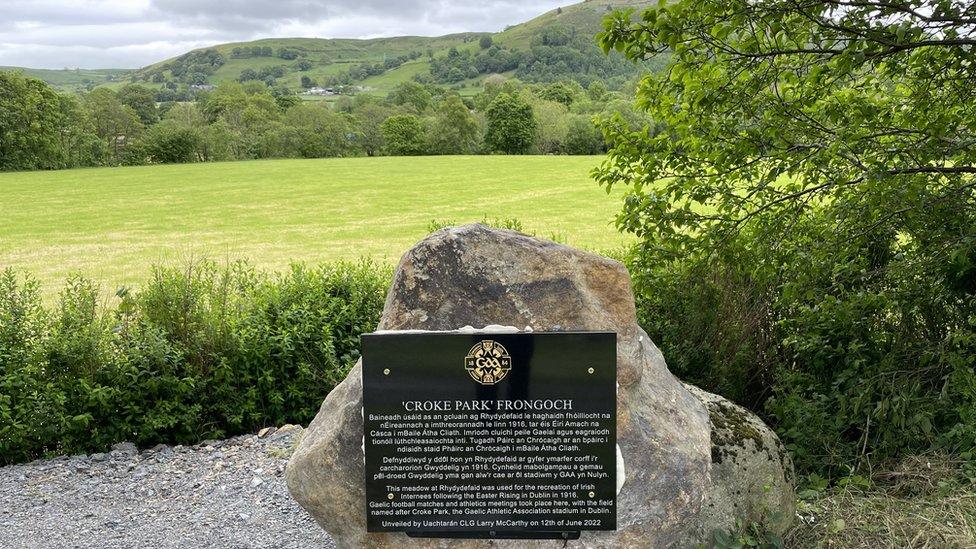
The plaque has been placed outside the meadow where Irish inmates played football matches
A plaque has been unveiled to commemorate a village's close links with Gaelic football.
Frongoch, in Gwynedd, is affectionately known as the Welsh Croke Park, the spiritual home of Gaelic Football in Dublin, as matches were played by Irish prisoners held there in 1916.
About 1,800 Irishmen were interned at two camps in the village after the Easter Rising insurrection in Dublin against British rule.
The plaque is at Rhyd y Defaid Farm.
The South Camp was situated on the site of an old whisky distillery, which had previously housed German prisoners of war.
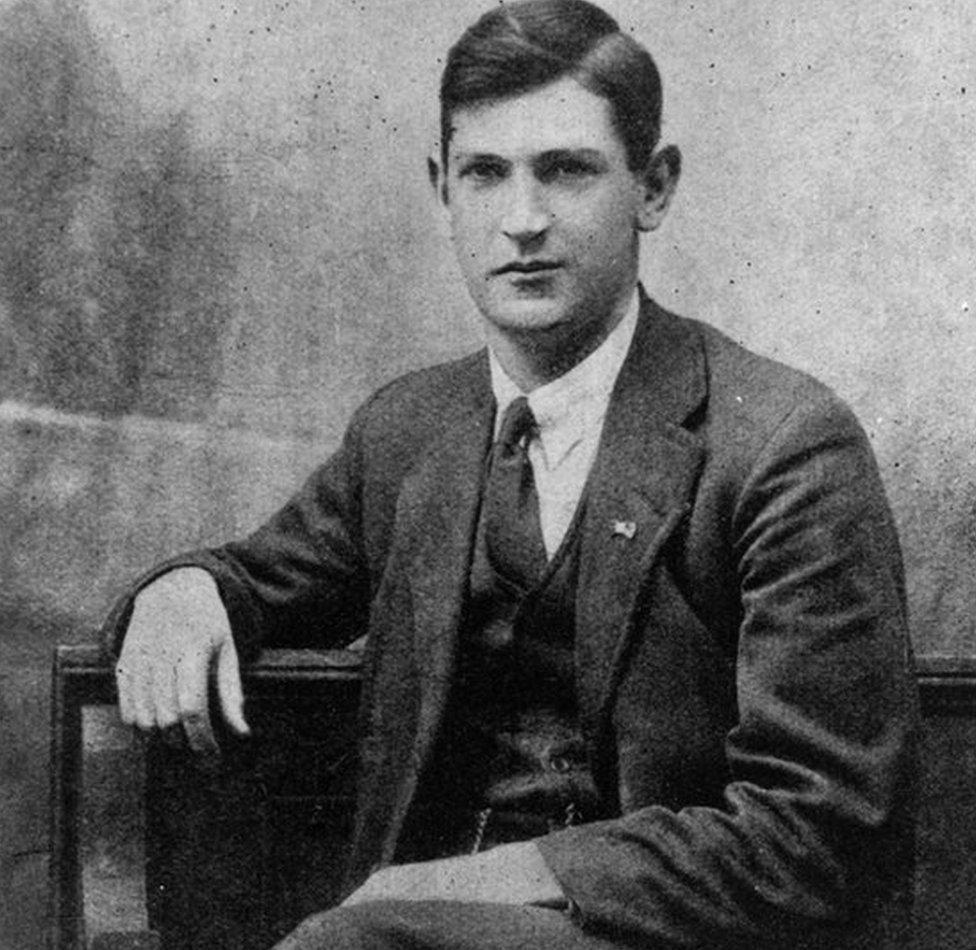
Michael Collins on his release from Frongoch
In more modern times, Ysgol Bro Tryweryn primary school was built on the site.
The North Camp was situated a few hundred yards from the South Camp and the prisoners slept in wooden cabins.
The Irish were kept in Frongoch from June to December 1916.
For physical exercise, the Irishmen crossed a bridge over the River Tryweryn to a meadow on Rhyd y Defaid Farm where they played various sports, but particularly Gaelic football.
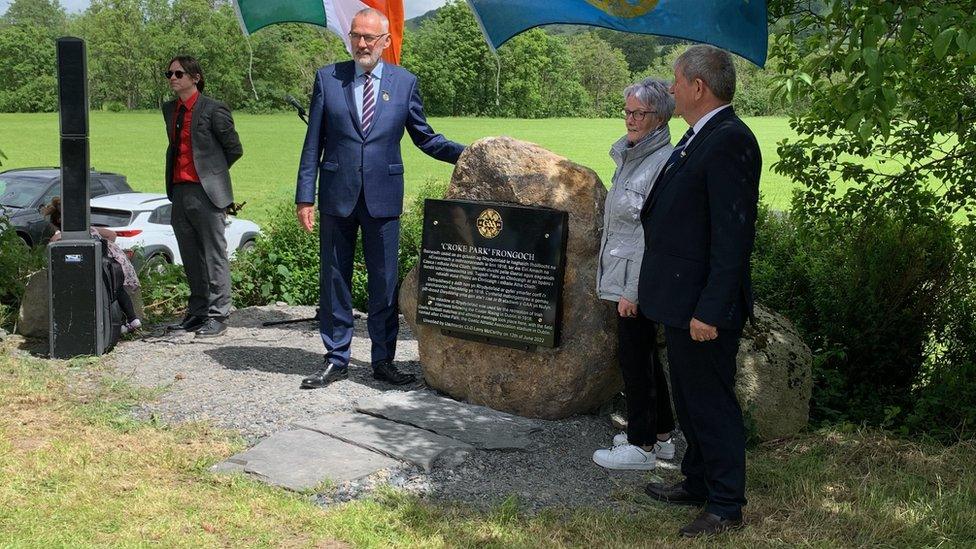
The plaque was unveiled at Rhyd y Defaid Farm
Local resident Alwyn Jones has opened a museum to remember the Irishmen, and has been working with the Gaelic Athletic Association on the commemorative plaque.
He told BBC Wales: "The field across the river was used for recreation by the Irish prisoners and one of the main events was a Gaelic Football match between Kerry and Louth.
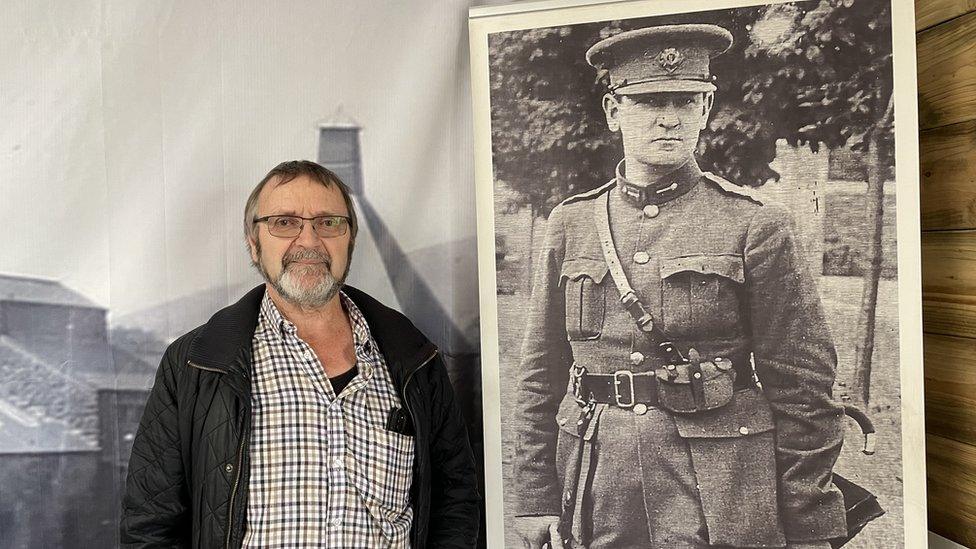
Alwyn Jones says the museum attracts a steady stream of Irish visitors every year who wish to learn more about their ancestors
"This was the only game, a final, outside of Ireland and they want to commemorate that it was played there.
"The descendants of the prisoners have visited here over the years they are very interested in the history and they are determined to keep the memory going.
"That's one of the main reasons I commissioned this museum."
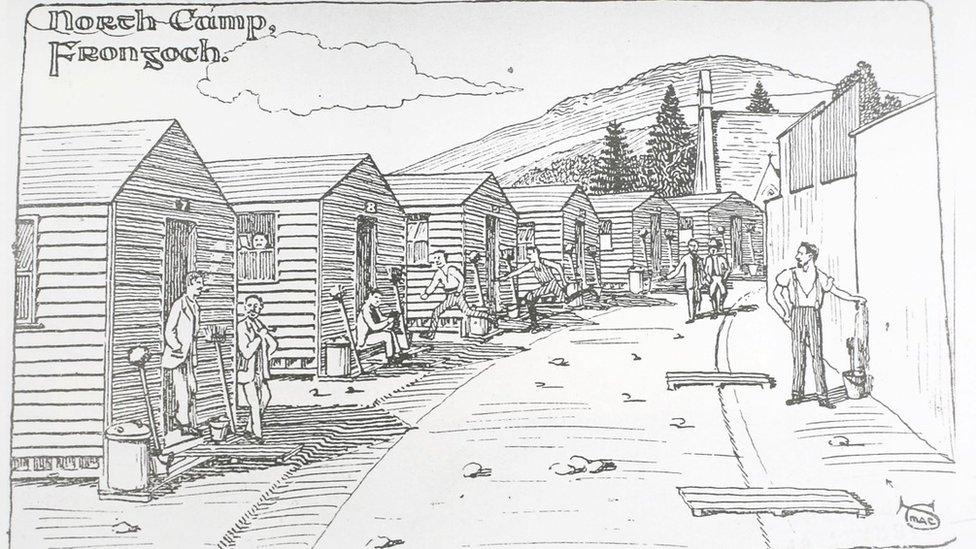
The prisoners were housed at two camps, North Camp and South Camp, near the village of Frongoch
Frongoch has been called the birthplace of the IRA and a "University of Revolution" because the Irishmen who were imprisoned there together were able to plan for the future and learn guerrilla tactics.
Dewi Davies is a local historian.
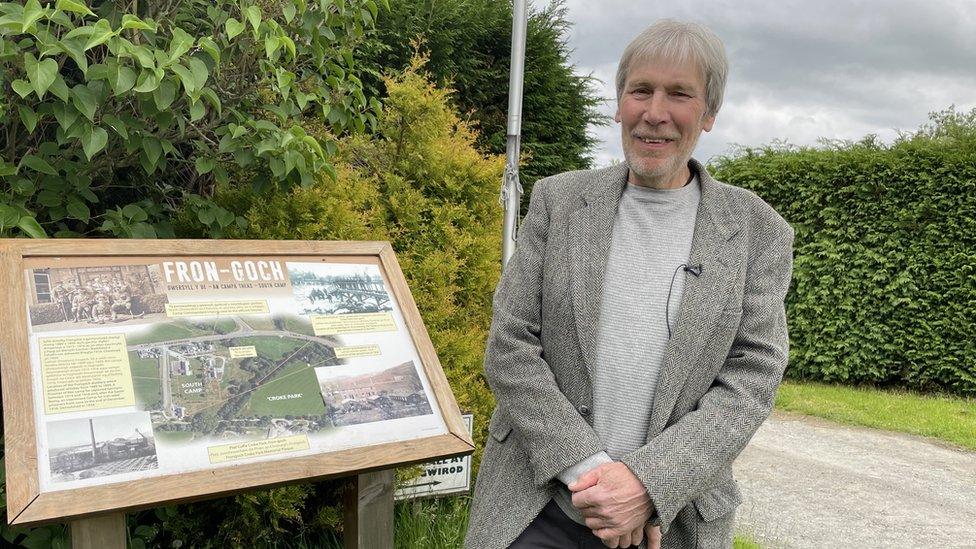
Dewi Davies said there were various Irish groups that "welded together" to become the IRA
He said: "Amongst them there was Michael Collins and there were many others as well which made themselves famous, or infamous in some cases, in the latter conflicts in the [Irish] War of Independence and the Civil War which followed.
"Well here the IRA as they were… the Irish Volunteers, The Citizens Army of James Connolly and other little groups like the Hibernian Rifles as well actually, were sort of welded together into the one IRA as it was known.
"When they left back to Ireland, then Michael Collins in particular started organising the War of Independence."
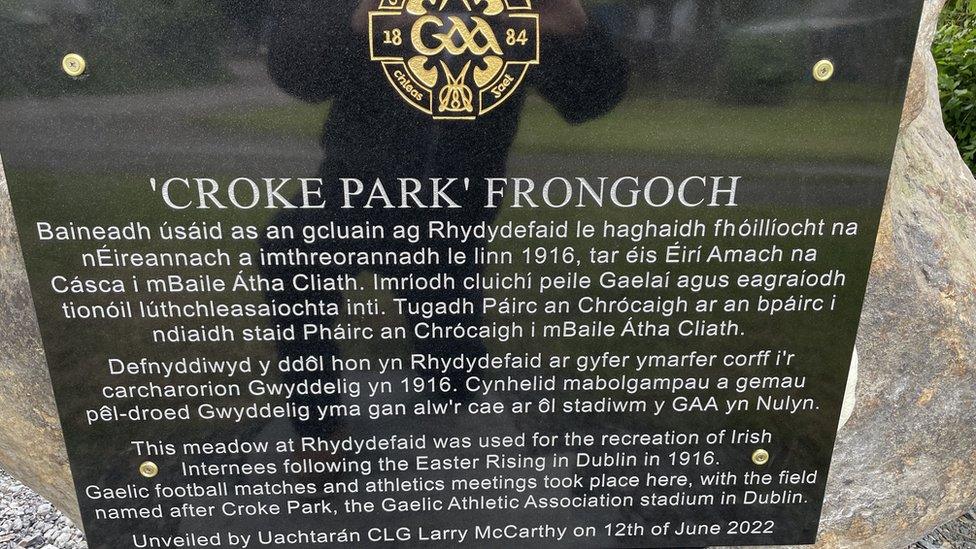
Around 1,800 Irish prisoners were interned in Frongoch after the Easter Rising in Dublin in 1916

FANCY A STROLL?: Welsh walks to try this summer
WILD MOUNTAINS OF SNOWDONIA : Five farming families open their gates and share their lives

- Published25 March 2016
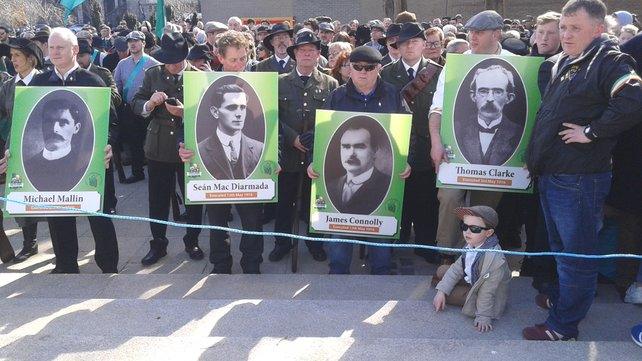
- Published28 March 2016
